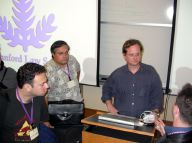Kurt MacKey on Best Buy’s attempt to use technology to weed out their least profitable customers:
dage “the customer is always right” goes, Best Buy doesn’t buy it. The massive retailer is being vocal about something that at first might sound a little uncouth: frankly, they’d rather not have 20% of their customers as customers. In an age where it seems like everyone casts their nets as wide as possible to bring in more eyes, feet, and wallets, Best Buy is doing the opposite. They believe that a small portion of their customers are bad for business, and they’re looking to shut them out. Of course, Best Buy loves their “angel” customers who buy things regardless of price, and load up on high ticket items. The problem is that the details are about the devils.
The devils are its worst customers. They buy products, apply for rebates, return the purchases, then buy them back at returned-merchandise discounts. They load up on “loss leaders,” severely discounted merchandise designed to boost store traffic, then flip the goods at a profit on eBay. They slap down rock-bottom price quotes from Web sites and demand that Best Buy make good on its lowest-price pledge. “They can wreak enormous economic havoc,” says Mr. Anderson.
Some see this as Best Buy trying to “have its cake and eat it too,” by wanting to keep rebates, loss leaders, and massive promotions going, but exclude those who make routine use of them.



